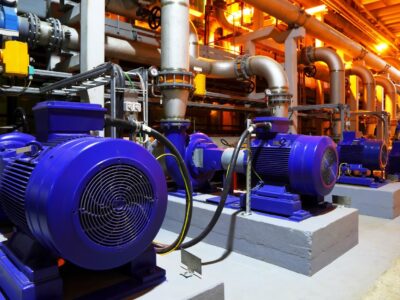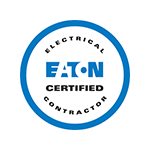A standby generator for your home or business is a great way to ensure uninterrupted power year-round. In uncertain times, a standby back-up generator can provide peace of mind. Since these generators can be significant purchases, you need to make the right equipment choices before installation.
Aside from capacity, one of the foremost decisions you will make for your new generator will be its fuel source. Natural gas and diesel are two of the most common options, and most generator manufacturers offer models that operate on either one. If you are not sure which is right for your situation, these three questions will help you to narrow down your choice.
1. Do You Have an Existing Gas Line?
Natural gas generators offer two significant advantages over other fuel sources: low fuel costs and no need for on-site fuel storage. Although leaks can potentially be a concern, as with any other piece of gas equipment, natural gas generators are typically an incredibly safe option since no fuel tanks are required. You will need an on-site natural gas hook-up, however.
If your home or business already uses natural gas for other equipment, then the cost to install a new line to the generator is typically low. The cost to bring an entirely new hook-up to your site may be more expensive, so you should consult with your local gas company if you do not already have service. While lines from the meter may only cost a few hundred dollars, new installs from the street may cost several thousand.
When evaluating the cost of installing your natural gas line, be sure to factor in the cost of diesel fuel delivery and the higher price of diesel. Depending on your local fuel costs, these added expenses may offset the higher installation price of a gas generator and natural gas hook-up.
2. What Local Emergency Conditions Are You Likely to Face?
An often overlooked question is what level of self-sufficiency a generator must provide, and what conditions may impede its operation. Both diesel and natural gas generators offer potential benefits and downsides on this front. In both cases, you should consider the causes and frequency of possible supply interruptions during an emergency.
For natural gas systems, outages tend to be rare, but you will still need to rely on your natural gas service company for uninterrupted fuel. Although Michigan does not tend to suffer from the types of natural disasters that can cause frequent gas interruptions, this is still a point worth considering. Disruptions may also take significant amounts of time to correct, which can be an issue in emergencies.
While you have total control over the fuel supply for a diesel generator, disruptions can occur in other ways. Flooding or snow-covered roads may drastically increase the cost of fuel delivery or even make deliveries impossible under certain circumstances. If you do not have on-site space for large amounts of fuel storage, then natural gas may offer more reliable services during emergencies.
3. What Are Your Environmental Concerns?
Diesel typically produces less carbon dioxide emissions than gasoline due to its higher efficiency, but natural gas is by far the cleanest burning fossil fuel available. Additionally, natural gas generators usually produce less noise than other fuel sources. Both of these advantages taken together make natural gas the superior option if environmental impact is a significant concern for you.
There is little you can do to reduce the emissions impact of a generator, but you can reduce the potential for noise pollution. By installing heavy-duty fencing or large bushes around your generator, you can absorb some of the noise. Although this may not do much to shield your own home or business from your generator’s racket, it can make its operation less intrusive to neighbors.
Whatever your generator needs, Oak Electric is here to help. Give us a call when you’re ready to bring reliable back-up power to your residential or commercial site.






















